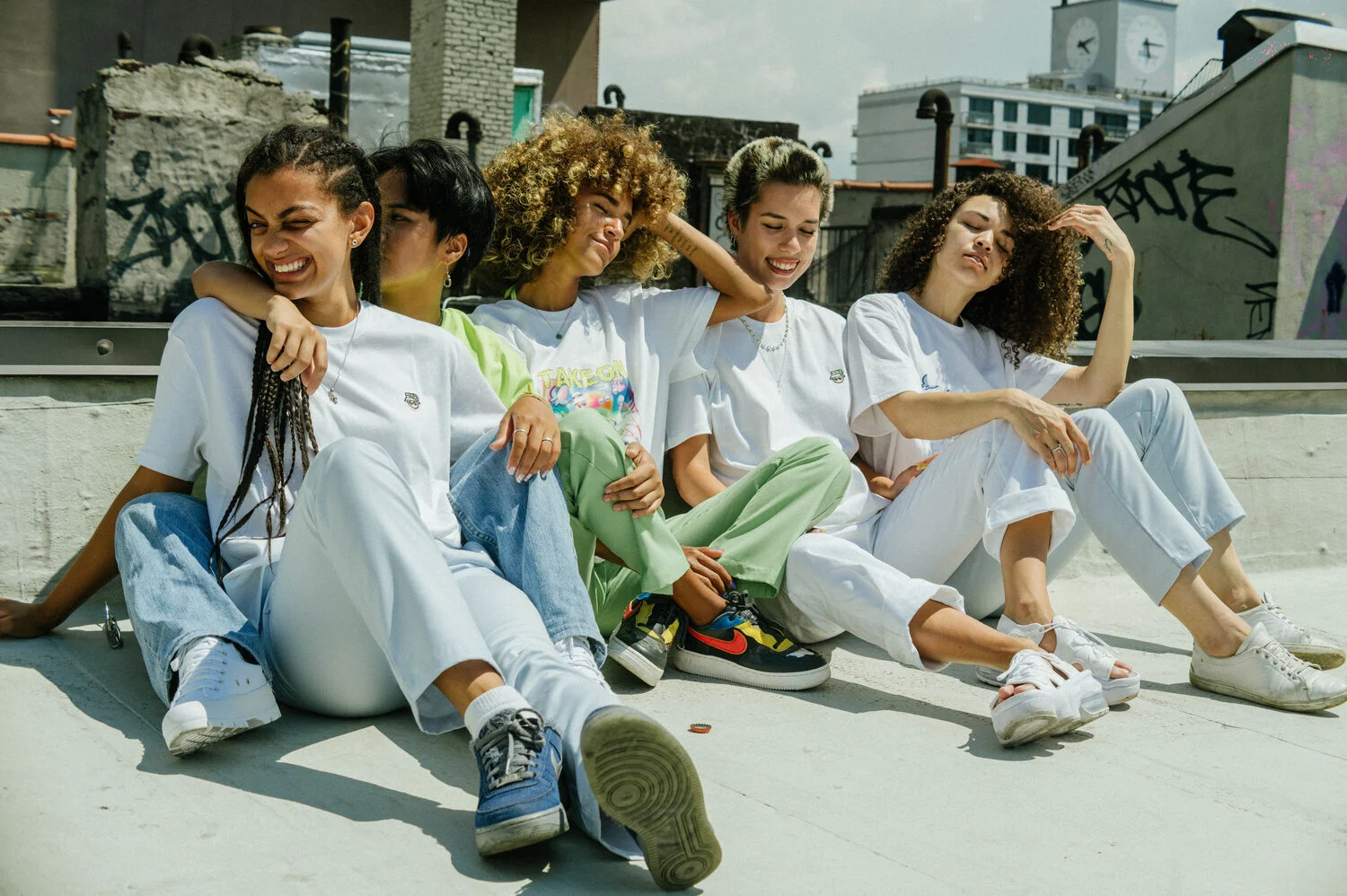Meet Fernanda, Founder of Purpose-Driven Volta Atelier
By: Kendall Becker
Volta Atelier and its founder Fernanda Daudt are all about making the industry —and the world— a better place. We’re in full support of nixing the idea that fashion has to be superficial and Volta Atelier’s mission supports just that. As a growing sustainable and purpose-driven brand, Volta Atelier brings boldness and optimism to the market. Read on for Fernanda’s journey!
Tell us about Volta Atelier! How did the brand come to be?
Being a fashion consultant and trend forecaster, I have worked several years for the leather goods industry. While researching for brands that I worked at that time, I understood that there was space for truly sustainable and purpose-driven brands. After developing sourcing projects in China, I witnessed the discard of raw materials and the environmental consequences of fast fashion production. So, I started to think and write about sustainable fashion. I believe starting Volta is a natural consequence of my work and my journey to find sustainable, fair trade, timeless designed, and affordable accessories.
Sustainability can be tricky for many businesses to incorporate and it’s clear it holds quite the pillar in your mission. How were you able to integrate this into your business model?
You are right, it's a business model that clearly cannot be incorporated by the broader industry overnight. But for us, it was a decision before we started. We wanted to be purpose-driven and to make a difference as a brand, creating a more regenerative business model. That way we could make decisions since the early beginning ensuring sustainability and social responsibility from a system perspective and applying the principles of circular economy. Thus, we built our sourcing system, production system, and cost structure based on this. At Volta, responsible fashion is part of our identity, our core.
You’re also incredibly supportive of local artisans. Can you share that journey with us?
During my career as a consultant, I had the opportunity to develop several projects working closely with artisans with different cultures and traditional craftsmanship. This exposure helped me understand the value of working respectfully with artisans, and led me on a journey of discovery and ethical considerations through fashion and eventually became one of the characteristics of my work.
So when I started thinking about the brand it looked natural the use of craftsmanship as a differential and the hand-stitching became one of the key characteristics of the brand. At the same time, there is a community of Haitian refugees living in my hometown in Brazil who face enormous difficulties in rebuilding their lives in a new country. We partnered with a local NGO to give training and a source of income for these women. Many of them revealed themselves as extremely talented artisans.
Your pieces are chicly bold yet wearable — where did you look for inspiration when establishing the brand identity?
We focused on designing simple, timeless, and lightweight pieces. What usually makes them bold is the leather. At Volta, the leather is the star of the product. As we use only discarded leather, the sourcing is a key element in our process. We carefully select them from amazing brands in their factories and tanneries, where they are regularly discarded after production or collection. And because they come in small pieces, our bags are often one-of-a-kind.
It’s no secret that the world and fashion industry is undergoing quite a transformation. What impact do you hope Volta Atelier has on the industry/society?
When I started to write about fast fashion almost 10 years ago in Brazil, everyone thought "ok, it's a nice thing", but manufacturers and consumers didn't care much about it. Happy to see that, nowadays, there is no serious brand that is not concerned with sustainability. For the future, we want to make better, prioritizing actions over words, and to inspire the next generation of responsible creatives. Hopefully contributing towards a systemic change in fashion.
Growing up, were you always interested in fashion? Or what drew you to the fashion industry?
Fashion is something that has been important to me for as long as I can remember. Growing up, I remember playing dress-up with my sisters, exploring my mother's closet. I believe that that helped me to allow my personal sense of style to grow from a young age. My grandmother would sew dresses for us and my mother, who was a philosopher, changed careers and worked on fashion for a long time. So I grew up among fashion books and magazines in an environment where to create - and make - was something we could do ourselves.
Do you remember what you wore to your first interview?
I was 17 or 18 and dressed very formally for a sales assistant job. I had this idea that you had to dress formally in order to look like a serious person. I wasn't hired and that was awesome because right after that I started working in a vintage store where I learned a lot about fashion history with the owner.
What advice would you give someone wanting to pursue a similar path?
I would say that it is important to understand your cultural identity and your purpose. This will give you the strength and the love for what you do and the perseverance to keep doing it because nothing is or will be ready, it is always a work in progress.
Given our current situation, what are you doing to stay sane, inspired, and creating?
Living in such a challenging period is a great opportunity to slow down and think about the essential things but also a wake-up call, an understanding that the old way to think and produce fashion cannot be an option anymore. As a purpose-driven entrepreneur, I believe that it is truly important to stick with our mission and do our part to help to create awareness about the urgency to transition to a greener, cleaner, fairer world. Optimism, resilience, and creativity are key.





















